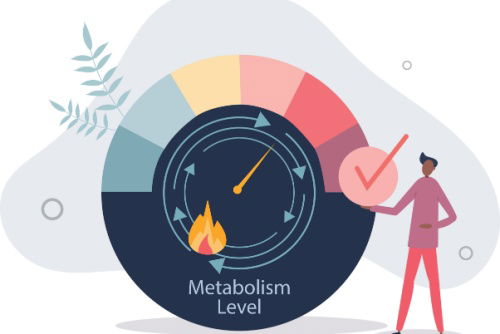PV-1 Gene May Revolutionize Metabolism

Research scientists at the University of Southern Denmark have made a groundbreaking discovery that could revolutionize metabolic health by offering new ways to avoid weight-loss plateaus. Their study, published in Cell Metabolism, focuses on a gene called plasmalemma vesicle-associated protein that plays a critical role in how the liver regulates energy sources during fasting.
By suppressing the PLVAP gene in mice, researchers discovered that the liver in mice continued to burn carbohydrates instead of shifting to fat oxidation, which is the typical cellular response during calorie restriction. This genetic manipulation not only sustained high metabolic activity but redirected fatty acids to muscles to bypass the common trip to "starvation mode" that significantly slows metabolism.
These results suggest a promising potential for new weight-loss treatments, possibly complementing the effects of existing medications, by overcoming frustrating weight-loss plateaus and enhancing metabolic efficiency. In addition, the new discovery suggests additional benefits like improved insulin sensitivity and lower blood sugar levels can be achieved and without any adverse effects to the mice.
NOTE: The University of Southern Denmark’s PLVAP study on metabolism was initially published in the journal Cell Metabolism. The team of research scientists included Daniel Hansen, Jasmin Jensen, Christian Andersen, Peter Jakobsgaard, Jesper Havelund, Line Lauritsen, Samuel Mandacaru, Majken Siersbæk, Oliver Shackleton, Jonathan Brewer, Blagoy Blagoev, Nils Færgeman, and Kim Ravnskjær (all from SDU). Collaborators from Japan, the USA, and Finland. Danish scientists suggest that targeting the PV-1 gene could be key to overcoming common barriers by offering new hope for those with significant weight-loss goals.
How Cells Trigger Metabolic Changes
Recent breakthroughs in how liver metabolism works with the PLVAP protein coding gene could revolutionize the way we tackle weight management and metabolic health. PV-1 is a membrane-bound homodimeric glycoprotein involved in the formation of the diaphragms that bridge endothelial fenestrae. In addition to liver metabolism, it also plays a critical role in embryonic development and is expressed in lung, kidney, spleen, adrenal, intestinal, heart, and genital cells.
Now, Danish scientists have uncovered a novel role of the PLVAP gene, found in hepatic stellate cells for regulating the body’s metabolic response to selecting energy sources during fasting. By disabling the PV-1 gene in mice, researchers observed that their livers continued burning carbohydrates for energy instead of switching to fat oxidation, which is the process often associated with weight-loss plateaus and overall metabolic slow-downs.
Long believed to be simply a survival mechanism during periods of food scarcity, the liver’s inability to recognize fasting states in the absence of gene easily disrupted the traditional shift from sugar to fat metabolism. This unique metabolic behavior could potentially lead to a seamless redirection of fatty acids to muscles to improve overall insulin sensitivity that may offer a new strategies as efficient fat loss has often frustrated individuals dealing with weight-loss plateaus.
Kickstart Your Journey for Weight Control
Today’s prescriptive medications have revolutionized the way we approach weight management by delivering results that go beyond traditional methods of dieting and exercise. These revolutionary prescriptions target the root causes of weight gain by mimicking the body's natural hormone responses to curb hunger, regulate blood sugar, and enhance metabolic function. By reducing cravings and promoting satiety, receptor agonists make it easier to maintain a calorie deficit without highly restrictive menu plans.
Combined with healthy lifestyle habits like balanced nutrition and regular physical activity, injectables become a powerful tool for kickstarting a weight loss journey, especially for obese or overweight individuals with certain weight-related health conditions. When paired with one-on-one coaching, like the personalized support offered at the Metabolic Research Center, they unlock a sustainable, science-backed path to improved metabolic health and overall well-being. And hopefully, innovations with PV-1 will help them overcome weight-loss plateaus.
Ultimately, exploring the molecular role of PLVAP paves the way for innovative, science-backed solutions aimed at reducing weight-loss challenges and achieving long-term health improvements. Visit us at the medical weight loss clinic Omaha to see how our experienced team can help you achieve your weight loss goals. All it takes is a quick email or phone call to learn more about MRC’s science-backed approach, and while you there, schedule a free consultation as your first step toward healthier living.
By submitting this form, you agree to receive marketing text messages from us at the number provided, including messages sent by autodialer. Consent is not a condition of any purchase. Message and data rates may apply. Message frequency varies. Reply HELP for help or STOP to cancel. View our Privacy Policy and Terms of Service.

